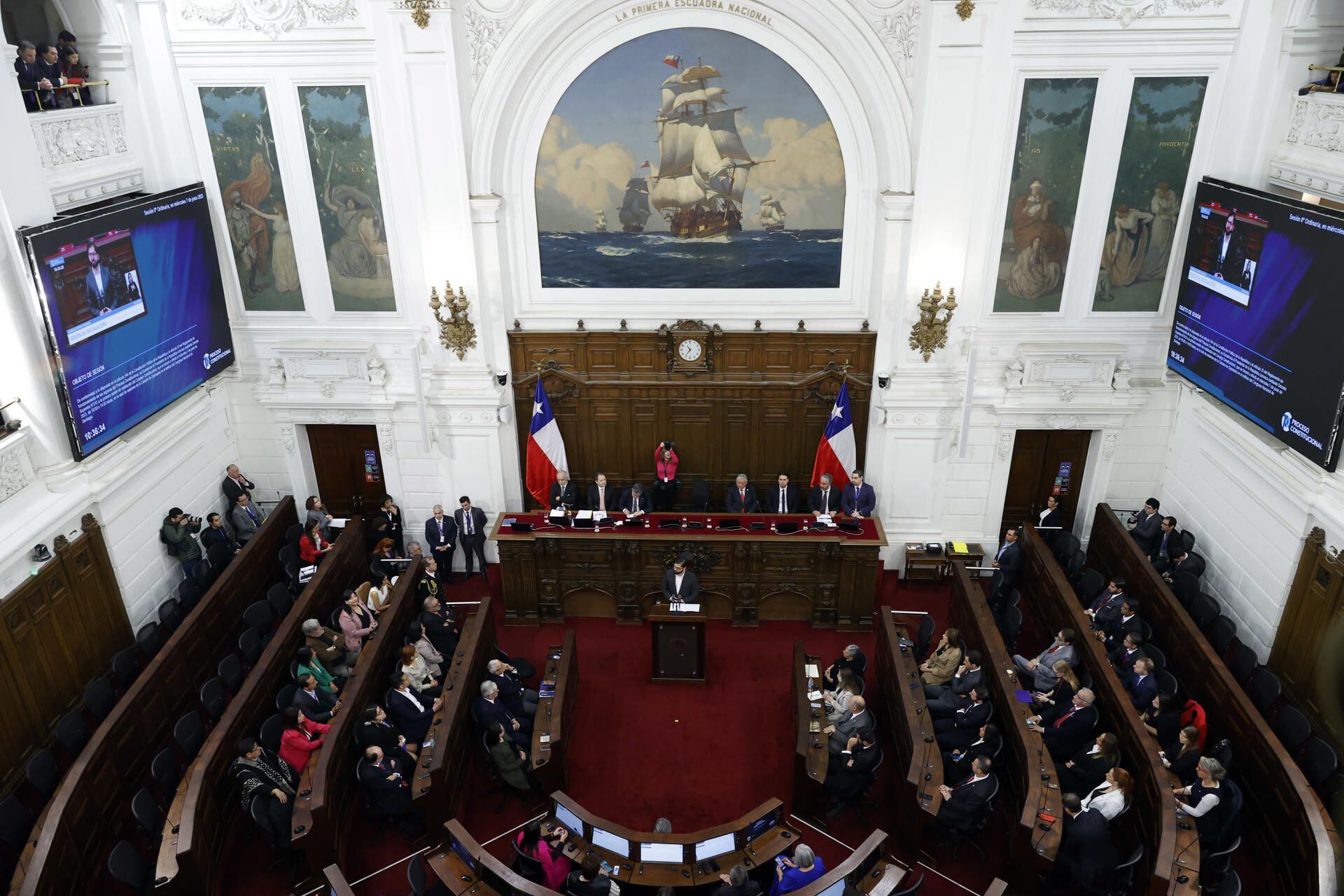
Chile celebrated a new milestone on Wednesday in its lengthy constitutional process with the installation of the Constitutional Council which, after the first failed attempt in September, will draw up a new magna carta under the leadership of a far-right majority.
In a sober ceremony without symbolism, in which the will to overcome differences marked all the speeches, the councilors were sworn in -several of them with mention of God included-, they chose their board of directors and received the draft prepared by 24 experts from which they will have to work.
“We do not want to fall into the divisions of the past, our willingness is to overcome the current polarization”, expressed in her first speech the president-elect of the Constitutional Council, Beatriz Hevia, a 30-year-old lawyer from the far-right Republican Party, who has a majority in the body and is in favor of maintaining the current Constitution, inherited from the dictatorship of Augusto Pinochet (1973 -1990).
The vote, which took place without surprises, outlined the two blocks that make up the new body: Hevia received 22 supports from the Republicans plus 11 from the parties of the traditional right.
“Chile is experiencing a moral crisis that manifests itself in the breakdown of family life and in contempt for authority and norms”, he added.
For the vice presidency, the former rector of the University of Valparaíso Aldo Valle, an independent close to the Socialist Party, was elected with 17 votes coming from the ruling party (without the traditional center-left parties, which were left out of the body) and the support of the representative of the indigenous peoples.
A second more moderate attempt
This is the second attempt by Chile in three years to draft a new fundamental law, after the broad rejection of a refounding proposal, drawn up by a convention with a majority of the left.
President Gabriel Boric, who said over the weekend that if this project is also ruled out at the polls there will not be a third opportunity during his government, called on the councilors to develop “a collaborative process” in which the parties “be able to give in when necessary”.
Meanwhile, outside the old Santiago Congress, a hundred ultra-conservative protesters shouted “against the cowardly and thief right, and the enemies of the homeland”, in defense of the current Constitution.
The text that the Council received today is more moderate than the previous one, but enshrines the “Social and democratic state of law”, a historical aspiration of the left, and recognizes the original peoples “as part of the Chilean nation, which is one and indivisible.”
“A starting point”
The big unknown now lies in whether the extreme right, which defends the neoliberal model installed by the dictatorship and has veto power with 22 of the 50 seats, will respect the bases included in the draft or will join the traditional right to change them from the root. “This text is not an end point, it is a starting point so that it becomes a meeting point”, indicated the new president.
“It is very probable that now the Republican Party wants to make changes taking advantage of its majority. It will be interesting to see if the right-wing coalition (Chile Vamos) will have a moderating effect considering that the extreme right needs that coalition for an absolute majority”, he pointed out to EFE from the Network of Political Scientists Nerea Palma.
The constitutionalist of the Diego Portales University Javier Couso, for his part, assured EFE that the composition of the body leaves “the basic principles in a very fragile situation, which leads us to presume that many of them are going to disappear”.
As of today, the Constitutional Council, which finally had 50 members after the resignation of the far-right Aldo Sanhueza, accused of sexual abuse, will have four months to draft its final proposal.
The fifth month will be the turn of a mixed instance in which the experts will be able to make observations to the text emanating from the Council, which must be approved by 3/5 of the councilors and rejected by 2/3.
The final document will be submitted to a referendum on December 17 in which citizens will have to choose between two options: “In favor” either “Against”.
Source: EFE
Source: Gestion
Ricardo is a renowned author and journalist, known for his exceptional writing on top-news stories. He currently works as a writer at the 247 News Agency, where he is known for his ability to deliver breaking news and insightful analysis on the most pressing issues of the day.











